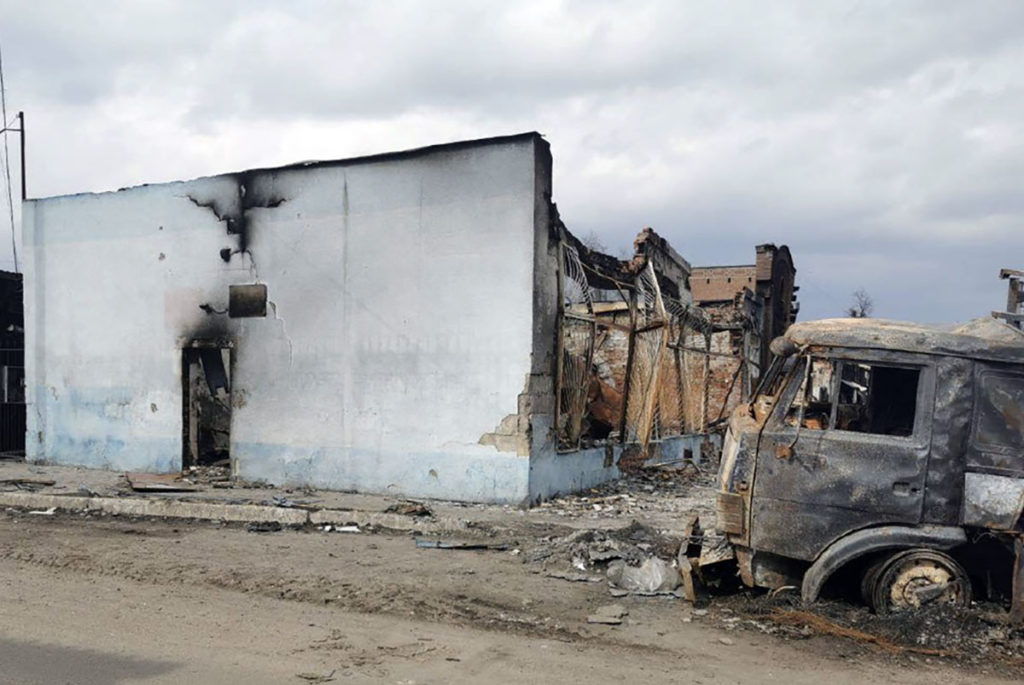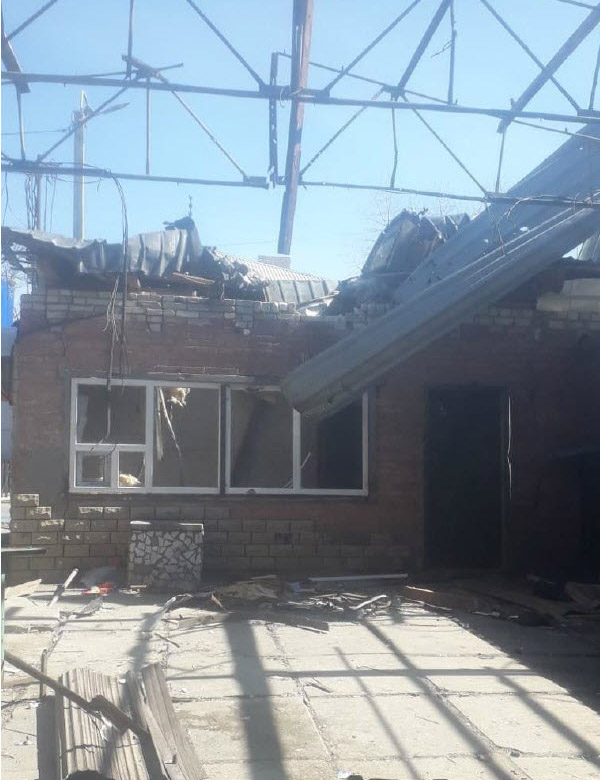
When employees of HomeWorks Tri-County Electric Cooperative in Portland, Michigan, saw the horrifying images of Russia invading Ukraine on Feb. 24, they began streaming into CEO Chris O’Neill’s office.
“We all just had this sickening feeling, and employees asked me, ‘What can we do to help?’’ O’Neill said. “They were very passionate about it, and they just had to do something.”
He gave the staff some options, including donating $15,000 that the co-op had saved to send lineworkers to Bolivia to electrify a village. That trip, planned for 2017, was canceled because of problems getting approvals from the Bolivian government, and the funds had not been reallocated.
“They just thought that using that money was a spectacular idea,” said O’Neill, who challenged other electric co-ops to match HomeWorks’ donation. “The people of Ukraine have had their lives turned upside down through no fault of their own. They need our help.”
The question then became how the 22,000-member co-op could make sure the money would get to the people who need it most. O’Neill ultimately turned to the nonprofit Cooperative Development Foundation, which was already raising money for Ukraine through its Disaster Recovery Fund.
On March 10, the National Co+op Grocers partnered with CDF and the National Cooperative Business Association CLUSA International to launch a fundraising drive to support the Ukrainian co-op community.
So far, the effort has raised nearly $230,000 from various types of co-ops, organizations and individuals, said Kirstie Boyette, CDF’s associate director. Those donations include the $15,000 from HomeWorks and $15,000 from the National Rural Utilities Cooperative Finance Corp., which was inspired by HomeWorks’ challenge to match its contribution.

“I’m thankful to HomeWorks for taking the lead and challenging the electric cooperative network to support the cause,” said CFC CEO Andrew Don.
The bulk of the donations are being used to support COOP Ukraine, which represents 15,000 co-op enterprises, including restaurants, hotels, manufacturing businesses, grocery stores and farmers markets.
COOP Ukraine is using the aid to help arrange for housing and meals for Ukrainians who have been forced from their homes by the war and need to find shelter in a safer part of the country or in neighboring nations, Boyette said. Where possible, members of COOP Ukraine are opening their own homes and hostels to house their countrymen.
CDF has already sent half of the donations to COOP Ukraine and is consulting with the Ukrainian leaders to see if they would like CDF to save some of the money to help Ukrainian co-ops rebuild their businesses in the future, Boyette said.
“Ukraine’s consumer cooperatives are suffering enormous losses…but we are determined to overcome everything and build a peaceful, happy Ukraine,” Ilia Gorokhovskyi, board chairman of COOP Ukraine, said in a statement provided by CDF.
O’Neill said he plans to talk to his employees about holding a fundraising campaign to raise more money for COOP Ukraine and, hopefully, get more electric co-ops to join them. Dixie Power in St. George, Utah, has already given $1,000, and individual employees from several electric co-ops have also donated, Boyette said.
“The people in Ukraine are going to need support for a long time; we can’t forget about them,” O’Neill said. “Any donation, no matter the amount, is going to be part of the solution in helping those who are suffering unjustly.”
To contribute to CDF’s Ukraine relief efforts, visit its Disaster Recovery Fund donation page.
Erin Kelly is a staff writer for NRECA.